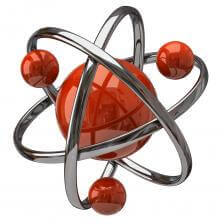Why Do I Have to Know This Science Stuff Anyway?
It’s important to be scientifically literate. Ask Science shows you why.
Lee Falin, PhD
Listen
Why Do I Have to Know This Science Stuff Anyway?
Something you may hear a lot when teaching science is, “Why do I have to know this stuff? It’s not like I need to know the atomic weight of Xenon in real life.” If you’ve ever asked or been asked a similar question, this episode is for you.;
The Big Secret
Here’s the big secret that your science teacher probably doesn’t want me to tell you:

So if that’s the case, why bother learning this science stuff at all? While there might not be any real need for you to memorize science trivia like the atomic weight of Xenon (which you can easily look up whenever you need to), there is a huge need for everyone to be scientifically literate.
So what’s the difference? Let’s look at a few examples.
The Dihydrogen Monoxide Hoax
Over the years, many politicians, concerned citizens, and media outlets have fallen victim to a hoax involving the dangers of dihydrogen monoxide. The hoax usually starts with someone discovering that their water supply, consumer goods, or even the very air we breathe has been contaminated with dangerously high levels of dihydrogen monoxide.
That sounds serious right? Isn’t that the stuff that comes out of broken kerosene heaters and kills you if you breathe in too much of it? No, wait, that’s carbon monoxide. Maybe it’s that stuff that burns your skin on contact…wait, no, that’s hydrochloric acid. Whatever it is, it sure sounds dangerous–dangerous enough for politicians in many countries over the years to suggest that it be either banned or severely regulated.
Imagine how silly they feel when someone inevitably points that dihydrogen monoxide is just another term for plain old water.
While we can’t really expect politicians to have every chemical name memorized, we should expect them to be scientifically literate enough to know how chemical names are constructed.
Had they been paying a little more attention in chemistry class, they would know that whenever a chemical name starts with “di,” it means “two.” So the first part of “dihydrogen monoxide” means “two hydrogens.” Likewise, the prefix “mono” means “one,” so “monoxide” means “one oxygen.” So “dihydrogen monoxide” means “two hydrogens and one oxygen”–or H2O.
Water Memory

Now if you have a little scientific literacy under your belt, you might wonder how anyone could believe in such a thing. Water is, after all, just a bunch of hydrogen and oxygen atoms floating around in liquid form. It’s not like it has a brain.
The reason this idea exists is that in 1988, a scientist published a paper showing that this effect occurred. Unfortunately, this experiment did not use the rigorous double-blind methods I discussed a couple of weeks ago, and when subsequent double-blind experiments were done, they showed conclusively that water has no memory.
Unfortunately, when people who aren’t scientifically literate look at this, they don’t ever seem to notice the subsequent follow-up studies, or even the techniques used in the first study. They simply read the headline, “Water has memory,” and head off to the homeopathic remedy shop.
Now, don’t get me wrong. I’m a big believer in many herbal and alternative therapies, many of which have sound scientific studies backing their results. However, healing based on “water memory” has repeatedly been shown to have no scientific basis.
Conclusion
So now you know a little more about why it’s important to be scientifically literate. To sum up, it isn’t really that critical to know things like the atomic weight of Xenon, but it is important to understand how science works, and to have a firm grasp of its basic principles. Otherwise, you might one day find yourself signing a petition in support of banning dihydrogen monoxide.
If you liked today’s episode, you can become a fan of Ask Science on Facebook or follow me on Twitter, where I’m @QDTeinstein. If you have a question that you’d like to see on a future episode, send me an email at everydayeinstein@quickanddirtytips.comcreate new email.

